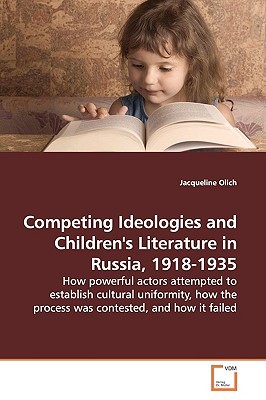
- We will send in 10–14 business days.
- Author: Jacqueline Olich
- Publisher: VDM Verlag
- ISBN-10: 3639134311
- ISBN-13: 9783639134315
- Format: 15.2 x 22.9 x 1.6 cm, softcover
- Language: English
- SAVE -10% with code: EXTRA
Competing Ideologies and Children's Literature in Russia, 1918-1935 (e-book) (used book) | bookbook.eu
Reviews
Description
After the October Revolution of 1917, the impetus to control authorship, the potential of children's literature as a creative medium, and the desire to communicate their visions to child-readers and their parents drew many ideologues to children's literature. Political figures, pedagogues, bureaucrats, authors, and illustrators entered into a public debate about what form a Soviet children's literature should assume. This interdisciplinary study integrates original Russian archival research, scholarship in Russian cultural and social history, and theoretical studies of children's literature to show how the process of creating children's literature in Soviet Russia was a contested one. Adults entered into a symbolic discussion about the meaning of their past, present, and future by authoring and contesting children's literature.
EXTRA 10 % discount with code: EXTRA
The promotion ends in 17d.00:22:12
The discount code is valid when purchasing from 10 €. Discounts do not stack.
- Author: Jacqueline Olich
- Publisher: VDM Verlag
- ISBN-10: 3639134311
- ISBN-13: 9783639134315
- Format: 15.2 x 22.9 x 1.6 cm, softcover
- Language: English English
After the October Revolution of 1917, the impetus to control authorship, the potential of children's literature as a creative medium, and the desire to communicate their visions to child-readers and their parents drew many ideologues to children's literature. Political figures, pedagogues, bureaucrats, authors, and illustrators entered into a public debate about what form a Soviet children's literature should assume. This interdisciplinary study integrates original Russian archival research, scholarship in Russian cultural and social history, and theoretical studies of children's literature to show how the process of creating children's literature in Soviet Russia was a contested one. Adults entered into a symbolic discussion about the meaning of their past, present, and future by authoring and contesting children's literature.


Reviews